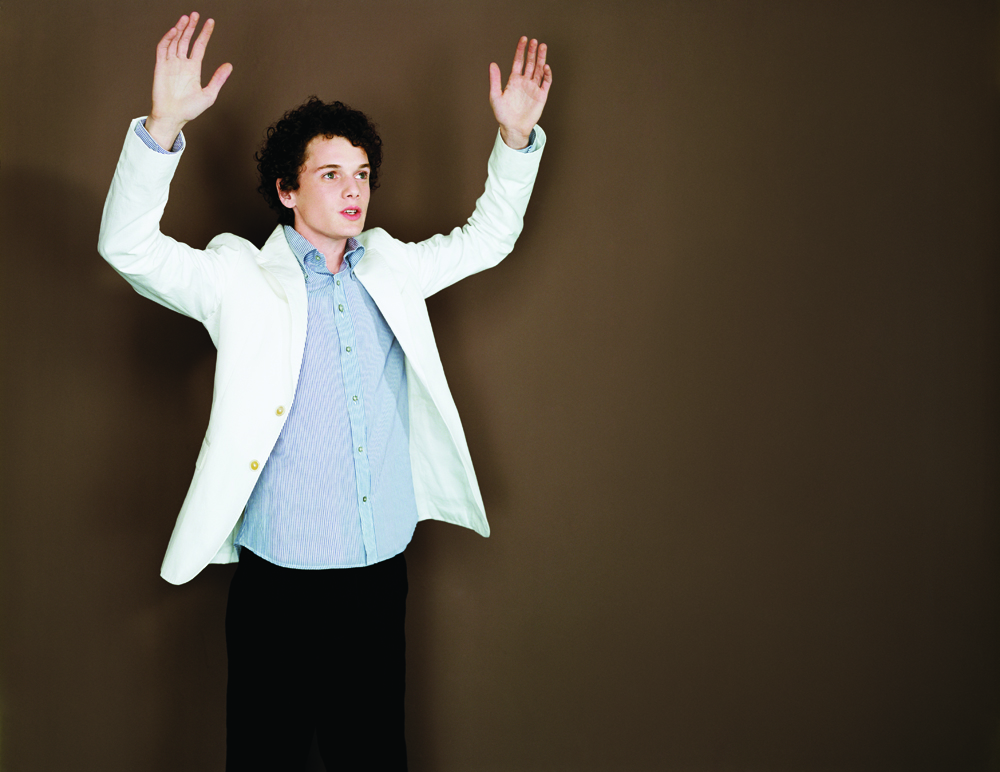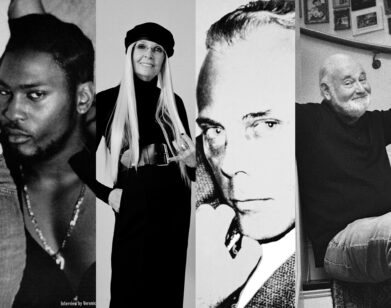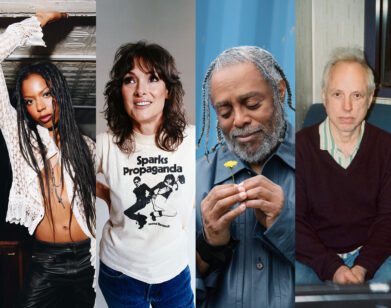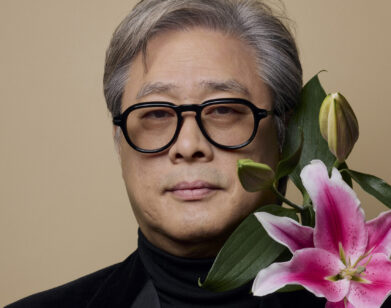Anton Yelchin

DIANE LANE: Anton, I’ve missed you! The last time I saw you was at the screening of our movie, Fierce People, which comes out this month. What grade are you in now?
ANTON YELCHIN: Eleventh. They like to say this is the year that counts, as though none of the other years really mattered.
DL: Do you have college plans?
AY: Yeah, I kind of want to go to Yale-it’s supposed to have a good arts program. Donald Sutherland told me I should go to Middlebury, so I thought I’d check that out, too.
DL: I went and looked at NYU with my stepson earlier this year. He’s a senior now, so it’s true-grit time in our house. Walking around the campus I thought, My God, there’s no way I could study in this environment. The distraction of being a student right there at the core of Manhattan in Greenwich Village must be so distracting for a student. I’d rather go someplace off in Vermont where I could just stay focused and do my thing. But I’m very impressed you’re going forward with your studies.
AY: It’s going to be hard, because I don’t know whether I should go to school right away or continue acting for a few years after I finish high school. It seems like all of a sudden I have to make these decisions that are going to affect the rest of my life.
DL: Well, all plans are made to be interrupted anyway. Do you do the whole tutor thing?
AY: Yeah, the first tutor I worked with is one of my closest friends, but he retired, so I’m studying with one of his friends. She worked with me on Alpha Dog, the last movie I did.
DL: Tell me something about that movie.
AY: Nick Cassavetes directed it. He’s this huge guy who’s pretty loud and profane. He seems really tough, but he’s actually very sensitive. He cried so many times during the filming of some of the heavier scenes-it’s something you’d never have expected.
DL: Well, the most tender hearts need the toughest armor, don’t they?
AY: Yeah. I’d like to imagine that that’s how [director and Nick’s father] John Cassavetes was as well. I don’t know where else Nick would have gotten it from.
DL: It’s wonderful to be working for people who inspire you. Have you seen the finished movie?
AY: Yeah, and I liked it a lot, though it’s hard to watch. It’s about these guys who kidnap this kid because his brother owes them money. It’s all tied in to drugs and stuff. It’s an upsetting story and it actually happened; like Nick, it’s extraordinarily direct. There’s no BS at all.
DL: I know you love photography and reading. Is there anybody who moves you whom you’d particularly like to mention?
AY: Photographywise, I’ve been looking at a lot of the early modernists, people like László
MohÂÂoly-Nagy. I got a book on the Russian avant-garde, and it’s really sad because pretty much all of their lives ended in the ’30s with Stalin. I’ve also been reading Crime and Punishment; lately I’ve been really interested in focusing on those aspects of my Russian heritage I’m proud of. I’m actually emÂbarrassed to tell people I’m Russian these days, because it’s become such an awful place.
DL: It has kind of lost its identity, hasn’t it?
AY: Yeah. Communism destroyed so many generations. I look at my grandparents and their generation, and it’s as if their lives were taken from them. It’s really sad and frightening that something like that could have happened. But I don’t really think of myself as Russian anymore-I didn’t even live there for that long.
DL: Russian blood still flows through your veins, though.
AY: Absolutely. But at the same time, that doesn’t mean I can relate to the whole Russian-pride thing. With Russia it’s particularly weird, because its relationship with the U.S. has always been so complicated. Russia itself is an extremely complex country, and sometimes I feel like all of that comes back to haunt me. I can see why so many Russian writers were so tortured. [both laugh]
DL: So being 17 in Hollywood, what’s the dating scene like for you? [laughs]
AY: I haven’t really met anybody from Hollywood. Most of the girls I know are from my school. I’ve gone to school with the same people since fourth grade, so I can’t wait to go to a place where I don’t know anybody-we all know each other’s characters so well, we keep trying to look for new elements. But you reach a point where you realize there aren’t any.
DL: That’s kind of a nice problem to have. What do you think of Andy Warhol?
AY: I love Andy Warhol! My friend Ian and I were just talking about how we wanted to move to New York and start our own version of the Factory. Ian’s dad is Mick Cripps, a guitarist for L.A. Guns, and Ian works for the Warner Bros. recÂord label, so we were thinking about starting an art gallery-cum-rock club, Ã la Warhol’s Factory.
DL: How fun! When I was about 16, I was interviewed by Warhol for a cover story in Interview. It was a wild moment, because he was so famous and I couldn’t quite figure out what for. Sometimes I didn’t know if he was making a joke or if the joke was on me. That was a great time, though.
AY: The clearest image I have of Warhol is from the film Basquiat [1996], in which he was played by David Bowie. Was he really like that?
DL: I have to give kudos to Bowie-he wasn’t far off. What are some other movies you’ve seen lately that you really liked?
AY: I just saw Paris, Texas [1984] for the first time.
DL: That’s my husband’s favorite movie!
AY: It’s one of mine, too. Over the years I’ve watched blocks of films from different countries, like Italian movies and the French New Wave. Then I tried German movies, but they’re so cerebral I couldn’t watch them at all-so I approached seeing a Wim Wenders [who directed Paris, Texas] movie very cautiously.
DL: So Paris, Texas redeemed German filmmaking for you?
AY: Definitely. I prefer when movies target my heart instead of my mind.
DL: What do you think of American films that go right for the heart?
AY: I think they’re cheesy. I prefer the Fellini approach, the kinds of films that don’t gloss over things. Sometimes I do like watching stories that I know have a perfect ending, and I always hope love stories have a perfect ending, kind of like The Notebook [2004]. We rented that one after I had worked on Alpha Dog with Nick-after meeting him you would never think he would make a movie like that.
DL: Though any happiness in the film is qualified by a lot of bitterness and sadness.
AY: Yeah. So I guess you could say I like the in-between stuff.






